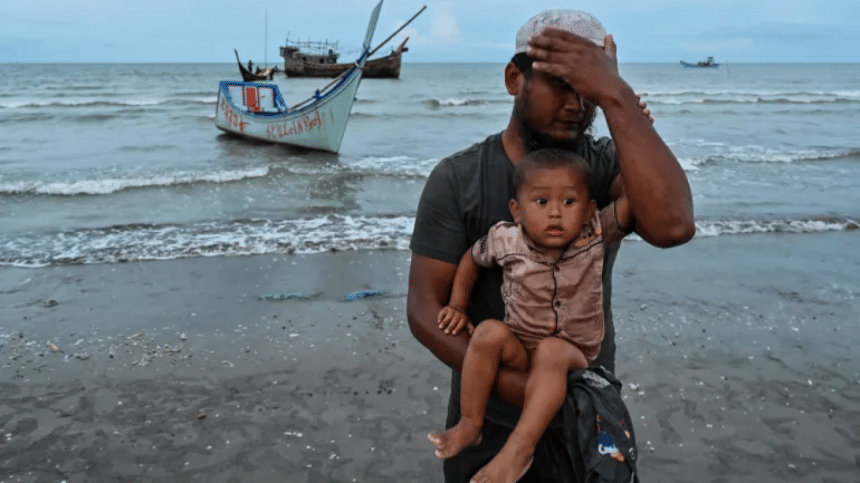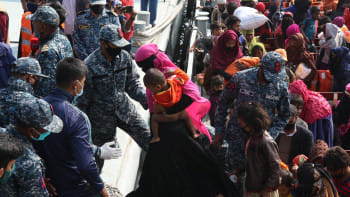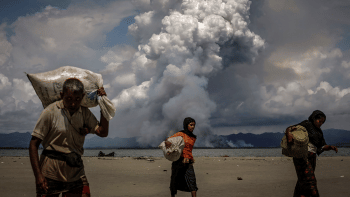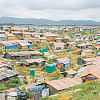Rohingya refugees: Forsaken and forgotten

At the time of writing this article, there was a stray boat with a failed engine and more than 185 Rohingya refugees on board—including women and children—out on the vast Indian Ocean, hoping against hope for timely rescue. The UN has urged the coastal states to save the lives of these helpless refugees, who are on a desperate journey and praying for a miracle.
This is far from the first time that the Rohingya have embarked on a dangerous sea voyage into the unknown that is fraught with lethal perils of Odyssean scale. According to the UNHCR, between January and August of 2023, more than 3,400 distressed Rohingya have undertaken such journeys (by land and by sea), of whom at least 207 have died.
In 2022, of the over 3,700 refugees who had embarked on such daring journeys, 350 either perished or went missing, making the year the deadliest on record for maritime movements in the region since the 2015 Andaman Sea crisis, with at least a 360 percent increase in such journeys in comparison to 2021.
Not that the refugees who finally manage to reach their desired destinations are met with a warm welcome. Take the case of the hundreds of Rohingya who have managed to find safety on the shores of Indonesia's Aceh province. Since their arrival, they have been shunned by the local population who fear an influx of refugees. In the Blang Raya village, the locals even tried to prevent the refugees' boat from docking.
Some call the refugees hopeless, while others vilify them, blame them for their peril, and hold them responsible for undertaking these journeys. But what other options do the Rohingya really have?
The Rohingya live in a perpetual state of fear and uncertainty, and with no headway in sight regarding their repatriation to their homeland or the restoration of democracy in Myanmar, their future looks even bleaker. With global attention diverted to the war in Europe a couple of years back, the focus on the repatriation of the Rohingya lost intensity. The world is still distracted, preoccupied with concerns other than the fate of one million people stuck in the backwaters of Bangladesh. The Rohingya refugees have morphed into a mere afterthought in the global scheme of things.
To flee the genocide unleashed upon them by the nefarious Myanmar military, the Rohingya have made various risky journeys into Bangladesh in search of safety and protection since the late 1970s. Between 210,000 and 250,000 Rohingya entered Bangladesh from December 1991 to March 1992. According to Oxfam International, since August 2017, more than 700,000 Rohingya have entered the country seeking refuge. Bangladesh currently hosts close to a million refugees, as registered jointly by the Government of Bangladesh and the UNHCR. With nearly 100 children born in the camps every day, the number of actual Rohingya refugees living in Bangladesh would be much higher if we included those who have not yet been registered.
These refugees live in filthy conditions in the sprawling camps across Cox's Bazar, and some away from the mainland on the isolated island of Bhasan Char. They have no economic opportunities and have to live on the aid they are provided by the international community. But this much-needed aid, too, has seen significant decline in recent years. According to one report, from $689 million in 2018, international aid for the refugees dwindled to a mere $383 million in 2022. The food aid for the Rohingya has also been slashed this year by the UN World Food Programme, from $12 per month to $8 per month, which comes down to 27 cents per day—or roughly Tk 30.
In order to scourge for food for their growing families, the Rohingya men especially have to resort to various illegal activities, including drug peddling and gang fighting. The women, on the other hand, are often forced into prostitution. The infiltration of the feared Arakan Rohingya Salvation Army (ARSA) has increased instances of turf wars and gang violence, which often result in innocent refugees becoming collateral damage. In the first half of 2023, at least 48 refugees were killed by armed groups in the camps. In 2022, the number of such killings stood at 40. The actual numbers are thought to be much higher than what is reported. The women and girls are afraid to go and use the toilets after night falls, lest they be forced upon, tortured, or abducted by criminals haunting the camps despite the stringent presence of law enforcers.
The China-mediated discussions on Rohingya repatriation, and the assurances of a pilot project to repatriate the Rohingya to their homeland, gave refugees some hope earlier in the year. But even those discussions seem to have hit a roadblock, with no progress towards this end made in the last few months. While the ruling Myanmar junta has only agreed to give the returning Rohingya a National Verification Card, the demand of the Rohingya for citizenship is a must for their safe repatriation. One ought to keep in mind that at the crux of the Rohingya crisis lies the perpetual and unjustified refusal of successive Myanmar governments to grant them citizenship, which is their due human right. If the Rohingya go back to Myanmar without citizenship, they will potentially be stuck in the same mire of statelessness which has caused their displacement over decades.
At the same time, given the current situation where the junta is losing ground to the ethnic rebel fighters and a civil war is spreading across the country, there is also the risk that if the Rohingya go back without citizenship, they might even be branded by the junta as rebel fighters and persecuted as such.
The Rohingya live in a perpetual state of fear and uncertainty, and with no headway in sight regarding their repatriation to their homeland or the restoration of democracy in Myanmar, their future looks even bleaker. With global attention diverted to the war in Europe a couple of years back, the focus on the repatriation of the Rohingya lost intensity. The world is still distracted, preoccupied with concerns other than the fate of one million people stuck in the backwaters of Bangladesh. The Rohingya refugees have morphed into a mere afterthought in the global scheme of things.
As dawn falls over 2023, one can only hope that the stray boat with 185 Rohingya, along with all other such boats out there in the vast watery expanse, reach their intended destination in safety, and that the Rohingya find light and hope as the sun shines over 2024.
Tasneem Tayeb is a columnist for The Daily Star. Her X handle is @tasneem_tayeb
Views expressed in this article are the author's own.
Follow The Daily Star Opinion on Facebook for the latest opinions, commentaries and analyses by experts and professionals. To contribute your article or letter to The Daily Star Opinion, see our guidelines for submission.

 For all latest news, follow The Daily Star's Google News channel.
For all latest news, follow The Daily Star's Google News channel. 











Comments